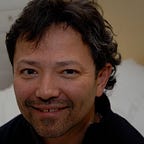Becoming Freedom 2
Deleuzian Ethics and Critical Freedom
Freedom is at the core of the ethics of Gilles Deleuze. But it is a different sense of freedom than that posited under liberal theory.
Liberal Freedom
Liberal theory tends to characterize freedom as either negative or positive. Negative freedom is freedom from interference. Negative freedom constrains others in how they act in relation to the individual subject.
Positive freedom is “exercising control over one’s life.” Positive freedom is the sense of one’s identity; having the autonomy to act in such a way as to realize one’s authentic desires or interests.
The Freedom to Change
As put forth in Paul Patton’s seminal book, Deleuze and the Political, freedom in the Deleuzian sense is “critical freedom” as that concept has been posited by James Tully.
While positive freedom assumes a subject that has formed interests, goals and desires, critical freedom includes not just the capacity to act in accordance with pre-formed desires and interests, but also the ability to change and reformulate one’s desires and interests; to create and revise one’s values.
Critical freedom is the ability to critically evaluate values and revise or transform one’s conception of the good.
It is a notion of freedom that contemplates the possibility of becoming, of participating in pure difference to create new ways of life in a manner such that the individual is de-centered, and at the limit dissolves into the virtual; subsequently re-forming in open actualities.
Critical freedom is the freedom to release identity and embrace difference as constitutive of life itself.
Becoming Imperceptible
Deleuze and Guattari discuss the personal transformation of the main character in F. Scott Fitzgerald’s novella, The Crack Up.
Fitzgerald writes of the imperceptible cracks which affect a person’s sense of self; subtle and supple transformations that come from within, and after which one is changed forever.
Deleuze and Guattari describe these events as:
…molecular changes, redistributions of desire such that when something occurs, the self that awaited it is already dead, or the one that would await it has not yet arrived. (A Thousand Plateaus)
In such circumstances, one becomes a new person with new things to care about. Deleuze and Guattari cite such changes as rhizomatic, becoming imperceptible:
…connected to a desire to reduce oneself to a minimal set of traits on the basis of which to forge new connections with the world. (Deleuze and the Political)
In such circumstances, desire re-forms in new intensities.
We become creators of a new life.
Freedom as the Affirmation of Life
Critical freedom is freedom to create life; freedom from identity and the affirmation of difference. It is central to a nomadic ethics of immanence.
Critical freedom is the desire to become, to open up, to create the new and find fulfillment in the pure experience of life in the open whole.
A nomadic ethics does not devolve into relativism and nihilism. On the contrary, the affirmation of life is normative; normative without reliance on transcendence, identity, rights or regulative morality.
Affirmation of life relies on openness to, and connection with, others. It involves an understanding of our collective drive to become. It is not an individualism that bolsters a specific actualization of life. It is at once both personal and social, in recognition of the ubiquity and heterogeneity of desire and change.
Nomadic Ethics
To engage in becoming is to be open to affective transformations, and at the limit, the dissolution of the self.
It is living on the edge. But it is not going over that limit; the desire to exercise one’s powers to full capacity does not extend to the exercise of power that dominates others.
Nomadic ethics is participation in the flow of life, transforming the negative into positive; transforming resentment into affirmation.
The affirmation of life implies the rejection of the destruction of life.
Nomadic ethics implies sustainability and endurance; it is an ethics to become with duration.
To become minoritarian is to transform into an intensive and nomadic subject that folds in external connection and unfolds internal affects in an eternal return of difference. It is a faithfulness, a leap of faith, in the ongoing capacity to affect and be affected.
Nomadic ethics is a pragmatic ethics that prioritizes relation over identity, and the changing nature of relations in society.
While it rejects transcendence and truth, it embraces practical thought that resists reactive forces in society, and embraces forces that deterritorialize; in a spirit of openness and the creation of the new.
Freedom of becoming is the freedom of becoming of all that there is.
To live a fulfilling life is to live a life of the freedom of becoming and the ethic of the nomad. It is embracing the forces of change within, and stepping into the open fold of flux that is all around us, and creating the new.
It is resisting the reactive forces that would coagulate our ability to engage in a process of pure difference and transformation. It is the expression of desire overflowing, exercised in the will to power as the affirmation of life and the eternal return of difference.
Fulfillment is to be a perpetual creator and re-creator of life.
I hope you enjoyed this article. Thanks for reading!
Tomas
Please join my email list here or email me at tomas@tomasbyrne.com.
Excerpt from my forthcoming book, Becoming: A Life of Pure Difference (Gilles Deleuze and the Philosophy of the New) Copyright © 2021 by Tomas Byrne. Learn more here.
